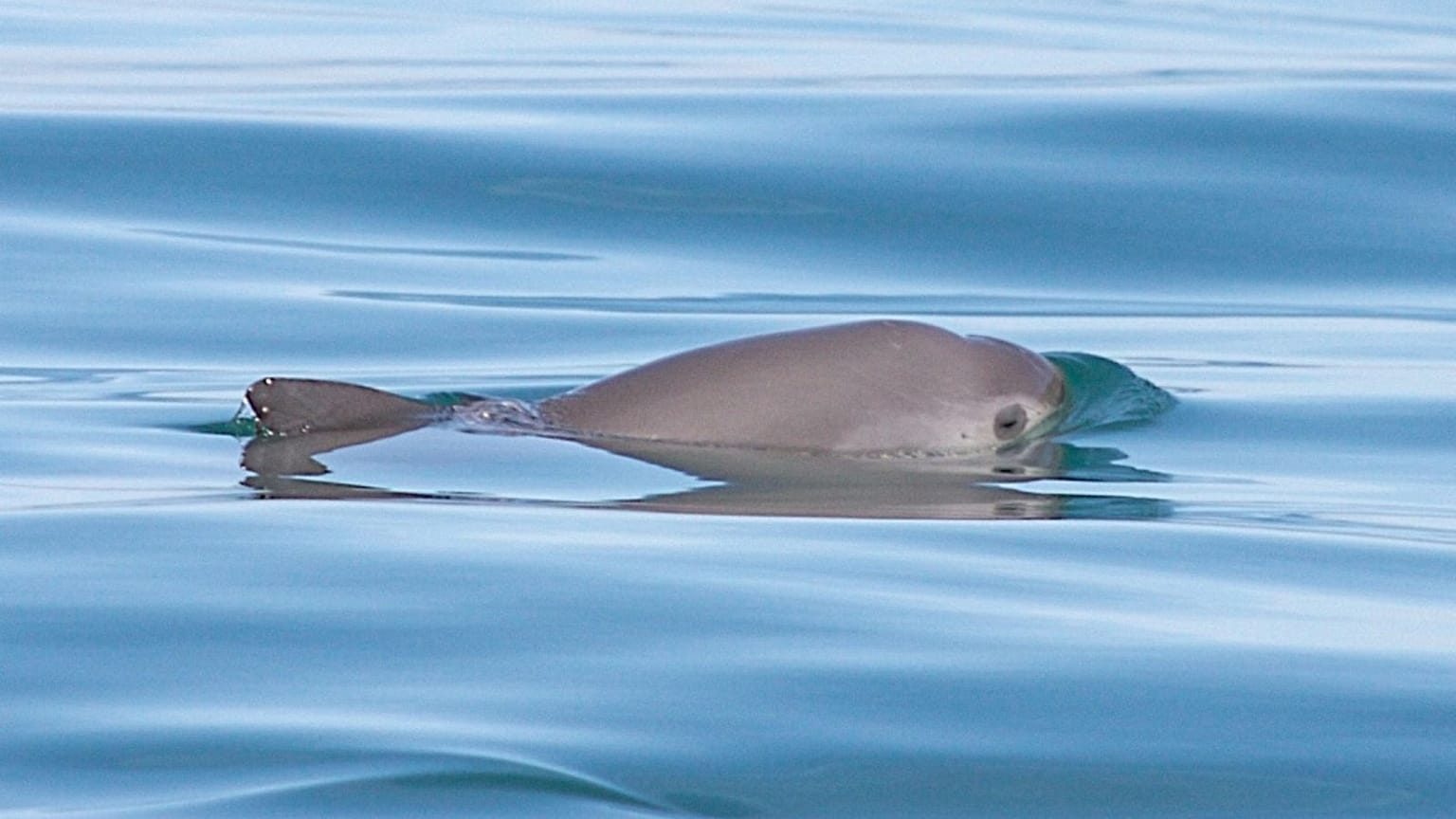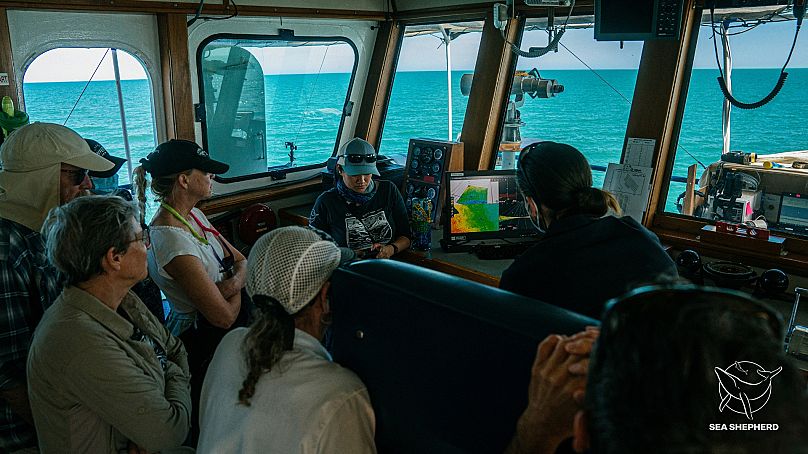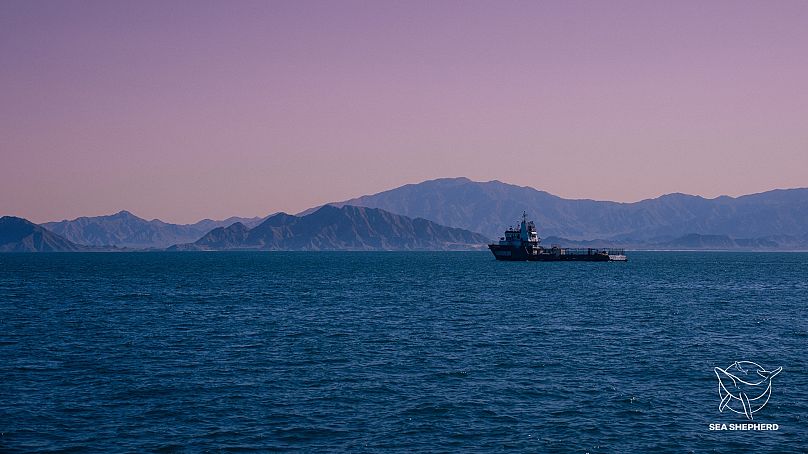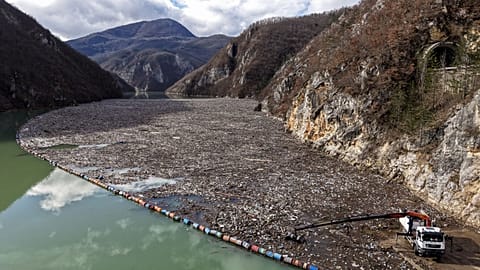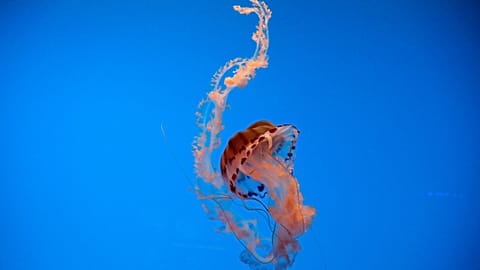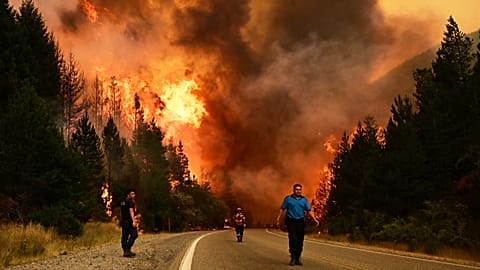Only around 10 vaquitas still exist in Mexico’s Gulf of California, where they are trapped and killed by illegal gillnets.
The International Whaling Commission has issued its first ever “extinction alert” for the smallest animal under its care: the critically endangered vaquita.
Around 10 of the little porpoises are still clinging on in their only habitat in the Gulf of California in Mexico, according to a recent research expedition.
Their main threat comes from entrapment in illegal “gillnets” - flat fishing nets suspended vertically in the sea - which have caused the population to plummet from nearly 600 individuals in 1997.
“The extinction of the vaquita is inevitable unless 100 per cent of gillnets are substituted immediately with alternative fishing gears that protect the vaquita and the livelihoods of fishers,” the IWC said on Monday.
If this doesn’t happen now, it will be too late.”
Calf sighting raises hopes for the survival of vaquitas
Experts from Mexico, conservation group Sea Shepherd and the US National Oceanic and Atmospheric Administration (NOAA) embarked on a research expedition in the gulf, also known as the Sea of Cortez, in May.
During nearly two weeks of sailing, they counted between 8 to 13 of the tiny, shy elusive porpoises. That is a similar number to those seen in the last such expedition in 2021.
Because they are so small and elusive, many of the sightings through powerful binoculars are categorised as probable or likely. The animals also emit “clicks” that can be heard through acoustic monitoring devices.
Hopes were raised by the sighting of at least one and probably two young vaquita calves. Dr Lindsay Porter, the vice-chair of the IWC’s scientific committee, says this signals that the individuals are healthy.
“There is at least one brand new baby vaquita” said Porter. “They haven’t stopped breeding. If we can take away this one pressure, the population may recover. We can’t stop now.”
Why are vaquitas being killed?
Fishermen set gillnets to catch totoaba, a fish whose swim bladder is considered a delicacy in China and can fetch thousands of euros per kilogram.
While the Mexican government has made some efforts to stop net fishing - like sinking concrete blocks with hooks to snag nets - the fishermen still enter the protected area to fish on a daily basis and even sabotage monitoring efforts.
According to the report, “fishermen have begun removing the acoustic devices (CPODs) used to record vaquita clicks. The data recorded on each device is lost, and it is expensive to replace the stolen CPODs.”
“Unless enforcement of the fishing ban is effective and the theft of equipment is stopped, acoustic monitoring cannot collect data as it has in the past,” the report states.
What needs to be done to save these endangered mammals?
Researcher Barbara Taylor called on Mexico to sink more concrete blocks to snag nets, because some of the vaquitas were seen outside the protected area.
The expedition took place from 10 to 26 May, crisscrossing a corner of the gulf where the few remaining vaquitas had last been seen.
Alex Olivera, the Mexico representative for the Center for Biological Diversity, said it is “encouraging news and it shows that vaquita are survivors. But we still need urgent conservation efforts to save these tiny porpoises from extinction.”
Olivera, who was not part of the expedition, estimated that “even in a gillnet-free habitat, it will take about 50 years for the population to return to where it was 15 years ago.”
"We need Mexico to urgently comply with existing regulations to prevent the vaquita from disappearing forever,” he added.
President Andrés Manuel López Obrador’s administration has largely declined to spend money compensating fishermen for staying out of the vaquita refuge and not using gillnets. It also doesn't monitor their presence or the areas they launch from.
Illegal fishing harms vaquitas and efforts to track them
Sea Shepherd has been working in the Gulf alongside the Mexican Navy to discourage illegal fishing in the area known as the ‘zero tolerance zone', where fishing is supposedly banned. However, illegal fishing boats are regularly seen there, and so Mexico has been unable to completely stop them.
Pritam Singh, Sea Shepherd’s chairman, said that patrols with the Mexican Navy have reduced the number of hours that fishing boats spend in the restricted zone by 79 per cent in 2022, compared to the previous year.
The last vaquita sighting expedition in 2021 yielded probable sightings of 5 to 13 vaquitas, a decline from the previous survey in 2019.
Illegal fishing itself has impeded population calculations in the past.
According to a report by experts published in 2022, both the 2019 and 2021 surveys “were hindered by the presence of many illegal fishing boats with gillnets in the water."
"Some areas could not be surveyed at all on some days due to the density of illegal fishing.”
The government’s protection efforts have been inconsistent at best, and also often face violent opposition from local fishermen.
The IWC said it has issued the extinction alert - the first in its 70-year history - because it believes that the vaquita’s extinction is not yet inevitable. “We wanted [...] to send the message to a wider audience and for everyone to understand how serious this is,” said Dr Porter.















